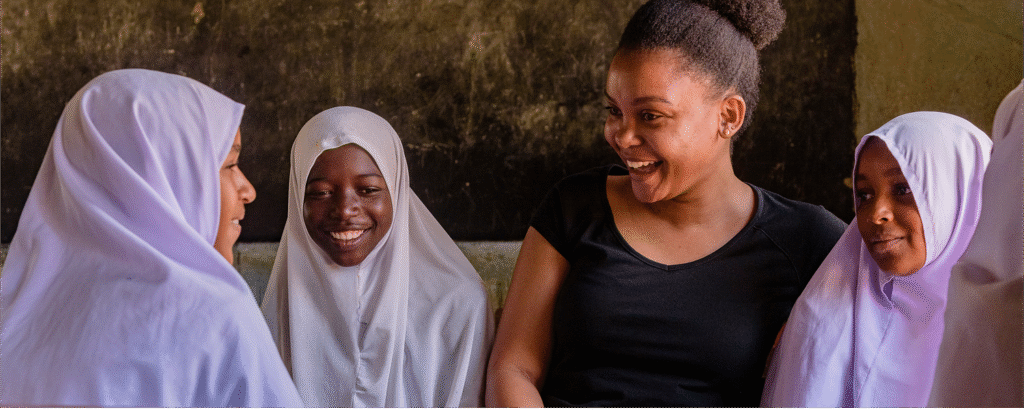The Malala Fund, a global champion for girls’ education co‑founded by Nobel laureate Malala Yousafzai and her father, Ziauddin, has announced a landmark $50 million pledge to advance secondary education — with a special eye on Nigeria’s most marginalised girls. This bold commitment, issued on June 25, 2025, marks a pivotal moment in the Fund’s five‑year “Strengthening Rights and Securing Resources for Girls’ Secondary Education” strategy.
In a statement released in Abuja, Malala Fund’s Communications Manager in Nigeria, Nankwat Dakum, emphasised that the investment aims to dismantle the entrenched barriers that keep girls from school, from child marriage and poverty to gender‑based violence and chronic under‑investment. “We want to ensure girls can complete 12 years of quality, safe education, especially those most affected by early marriage,” Dakum asserted.

The strategy is multifaceted, and this new round of funding is designated to empower grassroots, women‑led organisations, advocate for equitable education budgets, and pressure governments to uphold their educational commitments. Significantly, the Fund is targeting states with the highest out‑of‑school rates — Adamawa, Bauchi, Borno, Kaduna, Kano, and Oyo — while also working with federal authorities to bring education issues centre-stage in electoral platforms.
The effort builds on Malala Fund’s prior achievements: over the past decade, the organisation has enabled 21.8 million girls to pursue education and dispersed more than $56 million in grants globally — a substantial portion towards Nigerian initiatives. Yet approximately five million girls in Nigeria remain out of school, especially in the North‑East and North‑West regions, where intersecting challenges intensify the crisis.
Malala Fund’s Nigeria head, Nabila Aguele, praised the resilience of the country’s girls, saying: “We are witnessing adolescent girls in Nigeria demand education, despite overwhelming odds. This strategy represents our promise to support them. Advancing girls’ education demands swift policy reforms and local engagement.” Her words highlight the synergy between grassroots voices and large‑scale funding.
Supporting these efforts, Malala Fund Co‑founder Ziauddin Yousafzai recently visited Nigeria to engage traditional and religious influencers, civil society groups, and young people, aiming to enlist men and boys as allies in the education movement. This visit also underscored the strategic importance of collaboration across sectors to dismantle cultural and structural obstacles to girls’ schooling.
Founded in 2013, the Malala Fund is headquartered in Washington, D.C., and supports advocacy in countries including Nigeria, Pakistan, Ethiopia, and India. Its core mission: ensure that every girl receives 12 years of free, safe, quality education — especially at the secondary level. In recent years, the organisation has steered global efforts, such as securing a $2.9 billion commitment for girls’ education from G7 nations and the World Bank. The newly announced investment for Nigeria is the latest expansion of its global strategy.
Malala Fund’s strategic approach includes direct grants to local NGOs, advocacy for increased government education funding, and community mobilisation. In Nigeria, this will mean sustained backing of community-based, women‑led organisations and campaigns pushing for fair share budgets — all while amplifying the voices of girls themselves.
Meanwhile, the Fund is applying intense focus to the electoral process: by encouraging political candidates to prioritise education financing and policy reforms, Malala Fund seeks to embed systemic change across the political landscape. Dakum explained that these efforts aim “to hold leaders accountable for education funding,” underlining the clash between political will and budgetary reality.

The Road Ahead: Strengthening Systems and Measuring Impact
Malala Fund’s $50 million is not a one‑time grant — it’s an investment designed to spark enduring change. By anchoring the effort in policy, community, and advocacy, the Fund expects Nigeria’s education system to evolve into one that consistently supports girls from early adolescence through graduation.
Central to success will be rigorous tracking of outcomes. Measures may include increased secondary school enrollment and retention, declines in child marriage, and shifts in social attitudes. While precise Nigerian performance indicators await publication, similar Malala Fund programmes globally have shown improvements in both enrollment and community engagement.
Moreover, the Fund’s backing of grassroots women-led groups is critical. Data show that these organisations are often most effective at breaking cultural barriers, addressing gender-based violence, and enabling girls to navigate systemic failures. By providing both financial and advocacy support, Malala Fund is strengthening Nigeria’s educational ecosystem from the ground up.
The collaboration with local influencers, especially male community leaders, signals another smart move. Social norms change when respected figures become advocates, and Ziauddin Yousafzai’s visits have already helped prime communities for transformation.
Beyond funding, Malala Fund brings invaluable global expertise, analytical tools, and cross‑country lessons. Nigeria stands to benefit not just from money, but also from models tested in places like Pakistan and Ethiopia — countries the Fund has supported since its earliest days.
It’s also critical that educational gains are matched by improvements in educational quality. Malala Fund’s strategy includes building school safety, improving teacher training, and fostering supportive learning environments, though operational details for the Nigerian rollout will follow.
Join Our Social Media Channels:
WhatsApp: NaijaEyes
Facebook: NaijaEyes
Twitter: NaijaEyes
Instagram: NaijaEyes
TikTok: NaijaEyes
READ THE LATEST EDUCATION NEWS







































